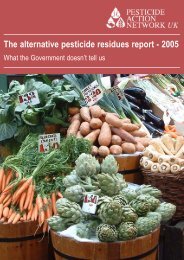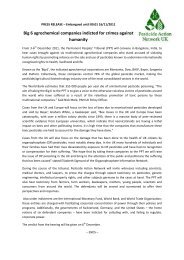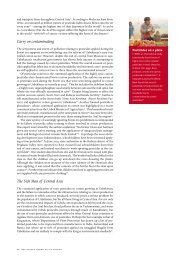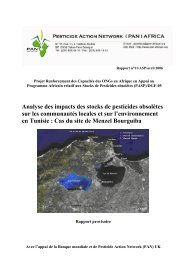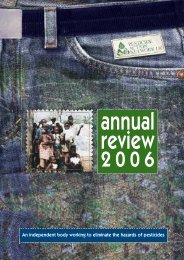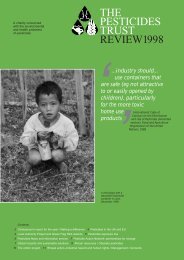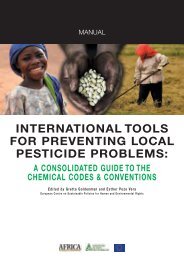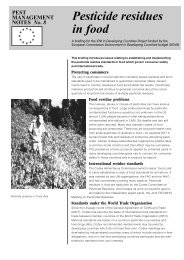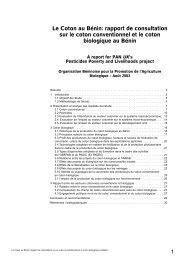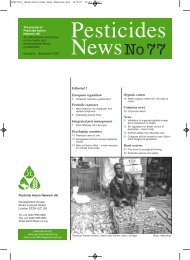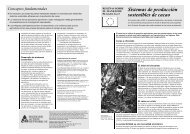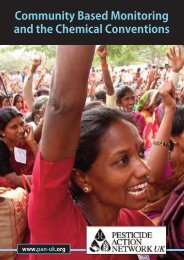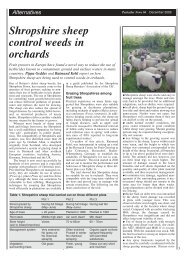Tanzania Multi Stakeholder Map - WebNG
Tanzania Multi Stakeholder Map - WebNG
Tanzania Multi Stakeholder Map - WebNG
You also want an ePaper? Increase the reach of your titles
YUMPU automatically turns print PDFs into web optimized ePapers that Google loves.
inadequacies found in the previous inventory, which covered wastes under the<br />
Ministry of Agriculture and Food Security’s stocks. This inventory will take on<br />
board wastes under the army, prisons and large farms. Furthermore, some of the<br />
identified stocks from the previous inventory had vanished, case example is<br />
stocks that were found at Mtibwa Sugar Company. The ASP will deal with stocks<br />
and spillages only but not contaminated soils. It was then contributed that the<br />
zonal managers of Ministry of Agriculture and Food Security will deal with<br />
government stocks and NGOs will deal with small and large farms stocks, this<br />
separation will have major positive impacts.<br />
3.4.3 How International Agreements Can Prevent Local Pesticide<br />
Problems: A Consolidated Guide to the Chemical Codes &<br />
Conventions<br />
Ms. Gretta Goldenman-ECOSPHERE<br />
The presentation highlighted the history of Ecosphere and how it is connected to<br />
PAN. The objectives for the Consolidated Guide are to increase understanding of<br />
the Chemical Codes & Conventions and their processes, to provide a practical<br />
guide for countries still building chemicals management capacity, to ease the<br />
burden of implementation by simplifying obligations and highlighting synergies<br />
and to create new opportunities for collaboration between NGOs & government<br />
for joint strengthening of the regulatory regime for controlling hazardous<br />
pesticides.<br />
She informed the participants that the draft consolidated guide will be sent to<br />
PAN UK & PAN Africa partners for local consultation and feedback in September<br />
2005, the guide will then be tested during October to December 2005. The<br />
revision of draft guide will be done on the basis of comments received. Peer<br />
review will be done by international agencies and regulators in January 2006.<br />
Revision of draft Guide will be done on the basis of peer review comments in<br />
March 2006. Local implementation of the Guide will be conducted by PAN Africa<br />
partners in April, May, and June 2006. She gave an outline of the guideline,<br />
which is shown, in her paper on Appendix III.<br />
After the presentation, one participant asked that the Guide that is developed by<br />
Ecosphere will have impact with the present institutional infrastructure. Will the<br />
guide include examples of <strong>Tanzania</strong>, and the reaction was that the guide will<br />
include examples from <strong>Tanzania</strong>. It was then commended that pesticide can<br />
assist in poverty alleviation only if it is a right chemical, applied in the right dose<br />
in right manner and it is safe. The effects of DDT can be included in the case<br />
studies while in the ASP inventory DDT will be included to evaluate its impacts if<br />
found high DDT will be taken into account if not DDT subject will be dropped. On<br />
19




